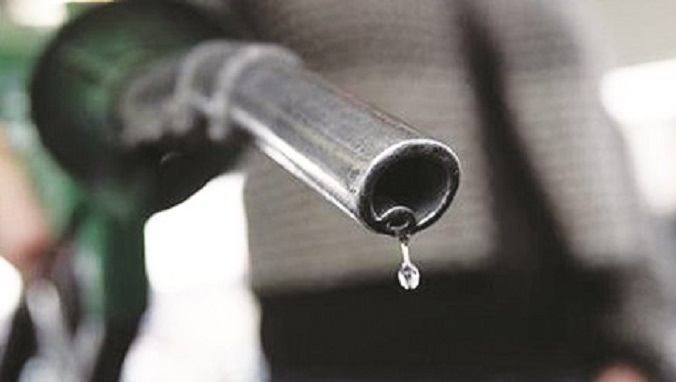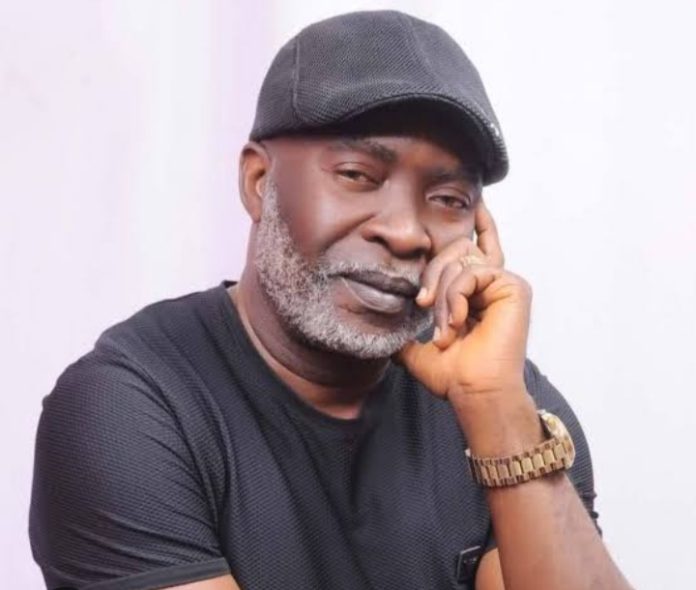News
Fresh Concerns in Nigeria as Crude Oil Price Slumps below $40

The price of Brent, the benchmark for Nigeria’s crude oil, fell below $40 per barrel to a four-month low of $37 on Thursday, raising fresh fears of another price collapse as countries in Europe announced a new rash of lockdowns on the back of a second wave of the COVID-19 pandemic.

Brent dropped 3.5% to $37.75 a barrel in London, being the lowest since May, while US crude dropped by 3.6%, to $36 as supply continued to outstrip demand.
With the United States recently cutting its import of Nigeria’s crude oil, the country, which depends on it for a huge percentage of its foreign exchange earnings, has been looking to Asia, mostly China and India, and a number of European countries to buy the commodity.
The falling prices will negatively affect the financial stability of the country’s 36 states, which are heavily dependent on federal allocations to pay their bills.
Unless the drop in prices is halted, it will also hamper the implementation of the federal budget, even after the government at the centre recently reviewed it for the year.
The majority of Nigeria’s foreign exchange earnings come from oil and a crash in global oil prices would lead to a drop in the country’s fiscal revenues putting pressure on its overall budgetary balance.
As the lockdown begins to take effect across Europe, particularly Germany and France, demand for oil weakened resulting in a deterioration of the price of white oil products.
Libya currently produces 680,000 bpd and expects production to rise to 1 million bpd in the coming weeks, a development that has created an additional headache for the Organisation of Petroleum Exporting Countries (OPEC) and its allies.
The international oil cartel plans to reduce production in January 2021 from a recent 7.7 million barrels per day to about 5.7m barrels per day and is scheduled to meet on November 30 and December 1.
If the fall continues, it will also negatively impact the 2021 budget, which is currently under consideration by the National Assembly and is based on a benchmark of $40 a barrel.
Meanwhile, the Congressional Research Service (CRS), a non-partisan group which provides legislative research and analysis for the United States Congress, has said crude oil accounted for 88% of the country’s $4.4 billion imports from Nigeria in 2019.
In its updated research paper titled,” Nigeria: Current Issues and US Policy”, authored for the American lawmakers by an analyst in African Affairs, Tomas Husted, and specialist in African Affairs, Lauren Blanchard, the CRS said Nigeria had maintained its position as the United States’ second-largest trading partner in sub-Saharan Africa.
The document is to help the country’s lawmakers make ‘informed’ decisions on key issues in the country.
“As of 2019, Nigeria was the United States’ second-largest trading partner in sub-Saharan Africa (after South Africa) and third-largest beneficiary of US foreign direct investment (FDI) in the region (after Mauritius and South Africa).
“Nigerian exports to the United States are dominated by crude oil, which at $4.4 billion, accounted for 88% of US imports from Nigeria in 2019.
According to US International Trade Commission data, Nigeria consistently ranks as the top source of exports to the United States under the African Growth and Opportunity Act,” it stated
However, it noted that Nigeria also remains a major regional destination for US exports of motor vehicles and refined petroleum products (e.g., gasoline), which are among the fastest-growing U.S. exports to Africa.
Agricultural products and machinery, the research group said, are other top US exports to the country, adding that Nigeria’s demand also has driven growing U.S. petroleum exports to nearby Togo, a regional transhipment hub.
On the US foreign assistance globally, the document noted that the USAID allocated $451.4 million in bilateral aid for Nigeria in FY2020, nearly 90 per cent of which supported health programmes.
News
Okonjo-Iweala Urges Nigeria to Shift from Importing Tech to Local Manufacturing

Dr. Ngozi Okonjo-Iweala, Director-General of the World Trade Organisation, WTO, has urged Nigeria to move decisively beyond importing technology to manufacturing it locally, warning that sustained dependence on foreign technology weakens the country’s industrial base and constrains job creation in the digital economy.

Speaking at Ahmadu Bello University, ABU, Zaria, Okonjo-Iweala said the current disruption of the global order, driven by technology, geopolitics and climate pressures, presents both serious risks and unprecedented opportunities for Nigeria and Africa, if they are prepared to act strategically.
“It is always a pleasure to come home to Nigeria, but it is particularly special to be here at one of the country’s most important seats of learning,” she said, stressing that universities such as ABU must remain central to Africa’s technological, industrial and economic transformation.
Tracing Nigeria’s post-independence journey, Okonjo-Iweala recalled that at independence in 1960, the country had only one degree-awarding institution, making the rapid expansion of universities a critical pillar of nation-building.
She noted that institutions such as ABU laid the foundation for Nigeria’s scientific, technological and entrepreneurial capacity.
Founded in 1962 as the University of Northern Nigeria, ABU has evolved into a multidisciplinary institution producing graduates across engineering, medicine, sciences, ICT, public administration and the humanities.
“Research conducted here has advanced the frontier of knowledge and offered practical solutions to real-world problems, from animal feed innovations during dry seasons to wind power generation in rural areas,” she said.
Turning to global trends, the WTO chief identified technology, particularly the internet and artificial intelligence, AI, as one of the most disruptive forces reshaping trade, production and employment worldwide.
“The technological shift we are experiencing has made it easier to communicate, produce and trade, but not everyone has shared equally in the gains,” she said, warning that automation and AI could deepen inequality if not properly managed.
She stressed that multilateral institutions and global trade rules must evolve to respond to emerging technologies such as AI and quantum computing.
“We need a new kind of multilateralism, one that is nimble, responsive and capable of addressing new global opportunities,” she said.
Okonjo-Iweala said Africa stands to benefit from what the WTO now describes as “re-globalisation”, the diversification of global supply chains away from over-dependence on a few countries.
She identified opportunities in labour-intensive manufacturing, critical minerals processing, renewable energy technology, pharmaceuticals, agro-processing and electric vehicle, EV, supply chains.
“Africa has the capacity to process its critical minerals all the way to EV battery manufacturing,” she said, pointing to Nigeria’s emerging lithium processing investments and vast renewable energy potential.
Reinforcing her call for local technology production, she said Nigeria must stop importing technologies it can manufacture domestically.
“Instead of importing solar panels, we should be manufacturing them here. That is how we create jobs, build resilience and grow our economy,” she said.
Okonjo-Iweala warned that Nigeria’s projected economic growth of 4.4 percent remains insufficient once population growth is factored in, calling for sustained growth of 6 to 7 per cent driven by productivity, technology and value addition.
She said achieving this would require strong digital infrastructure, skills development and innovation-friendly policies, alongside full implementation of the African Continental Free Trade Agreement, AfCFTA.
“Technology-enabled trade and deeper regional integration could increase intra-African trade by up to 45 per cent and lift millions of people out of poverty,” she said.
With Africa projected to account for about 25 per cent of the global working-age population by 2050, Okonjo-Iweala described Nigeria’s young population as one of its greatest technology assets.
“On an ageing planet, Africa’s youth represent the world’s future talent pool,” she said, urging universities, policymakers and the private sector to better align education, innovation and industrial strategy.
She, therefore, called for stronger collaboration between academia, industry and government to ensure Nigeria does not miss the opportunities created by global technological disruption.
“This country has what it takes. What we need is urgency, coordination and the courage to invest in our people and our ideas,” Okonjo-Iweala said.
News
Stanley Amandi, Nollywood Actor Arrested over Alleged Coup Plot against Tinubu

Stanley Amandi, veteran Nollywood actor and filmmaker, has been arrested by the Nigerian military over his alleged role in a foiled coup plot to overthrow President Bola Tinubu’s government, according to an exclusive report by Premium Times.

Stanley Amandi, Nollywood Actor
The filmmaker, also a former chairman of the Actors Guild of Nigeria (AGN) Enugu State chapter, was reportedly detained in September 2025 alongside several military officers accused of planning a violent overthrow, including potential assassinations of top officials, according to the newspaper’s sources.
Reports indicated that the coup plotters planned to wholesale assassination of top government officials including President Tinubu, Vice President Kashim Shettima, Senate President Godswill Akpabio, and Speaker of the House of Representatives Tajudeen Abbas, among others.
On Monday, the Defence Headquarters confirmed the plan to illegally oust the Tinubu administration, saying the indicted officers will be arraigned before military judicial panels.
In its statement, the Defence Headquarters said the investigation has been completed and forwarded to “appropriate superior authority in line with extant regulations.”
According to the military, the investigation was “comprehensive” and conducted in line with established procedures, examining “all circumstances surrounding the conduct of the affected personnel.”
The military disclosed that the findings identified “a number of the officers with allegations of plotting to overthrow the government,” describing such conduct as “inconsistent with the ethics, values and professional standards required of members of the Armed Forces of Nigeria.”
Mr Amandi has featured in many Nollywood movies and is known for his work as an actor, production manager and director.
His notable works include “The Album,” where he served as director; “Tiger King,” where he also served as director and produced in 2008; “Cornerstone,” produced in 2019; and “Once Upon a Dream,” in which he appeared as an actor in 2024.
Mr Amandi’s last Instagram post was on 19 September 2025, shortly before his arrest.
News
Firms Commit to Boost African Robotics Market

AfricAI and Micropolis Robotics have signed a multi-year exclusive distribution and deployment agreement, which marks one of the continent’s most significant robotics market entries.

Micropolis AI Robotics is a United Arab Emirates-based robotics manufacturer operating in autonomous systems, while AfricAI is a company building practical, revenue-driven artificial intelligence (AI) systems for African businesses, governments, and global partners operating in emerging markets.
According to the agreement, Micropolis Robotics named AfricAI as its exclusive continental partner, prohibiting direct sales, alternative distributors, and third-party agents from operating in the territory.
The partnership establishes AfricAI as the primary execution, localisation, and go-to-market platform for intelligent robotics in Africa’s industrial, security, logistics, and infrastructure sectors.
AfricAI said this exclusive mandate positions the company as the gateway for advanced autonomous systems entering African markets, ensuring regulatory compliance, local capacity building, and sovereign control over deployment frameworks.
The partnership, according to the two parties, moves beyond software- based AI into the realm of physical AI — intelligent machines capable of operating in complex, real-world African environments.
“This is not a collaboration, it is a market-shaping mandate,” said Fareed Aljawhari, CEO of Micropolis Robotics. “AfricAI now represents the exclusive gateway through which Micropolis technologies enter Africa. Their sovereign AI vision, operational reach, and regulatory fluency make them the only partner capable of executing at a continental scale.
Furthermore, the agreement enables AfricAI to integrate Micropolis’ autonomous robotics systems with AfricAI’s sovereign AI stack, resulting in AI-powered security and surveillance platforms, robotics-enabled logistics and port operations, industrial automation, smart infrastructure, and municipal robotics tailored to African operating conditions.
Initial deployments will commence in security, smart infrastructure, and logistics, with phased expansion across multiple African states as part of AfricAI’s broader continental AI, data, and intelligent infrastructure strategy.
The agreement also includes long-term performance-linked expansion rights, automatic renewals, and a defined localisation framework to support robotics deployment, workforce training, and skills transfer across Africa.
Prince Malik Ado-Ibrahim, executive chairman of AfricAI, said: “Africa does not need imported automation — it needs sovereign, context-aware intelligent systems. This exclusive mandate allows AfricAI to industrialise robotics deployment at scale while retaining control, compliance, and value creation on the continent.”

 Telecom2 days ago
Telecom2 days agoPolice Bust ₦7.7bn Telecom Hack Gang, Seize 400 Laptops in Massive Fraud Swoop

 General News2 days ago
General News2 days agoNaira Smashes Through ₦1,400 Barrier in Official FX Rally

 Broadcasting3 days ago
Broadcasting3 days agoNITDA, NBC Explore Strategic Collaboration on Digital Transformation, Media Regulation

 General News2 days ago
General News2 days agoNCC Slaps ₦250,000 Fee on Trial Licences to Spur Telecom Innovation

 News2 days ago
News2 days agoFirms Commit to Boost African Robotics Market

 E-Financial2 days ago
E-Financial2 days agoUBA launches instant digital platform for seamless account opening across Africa, diaspora

 Telecom2 days ago
Telecom2 days agoAmazon Axes 16,000 Jobs Worldwide in Major Restructuring Push

 General News2 days ago
General News2 days agoKaspersky Reveals How Digitalisation is Influencing Family Life



























